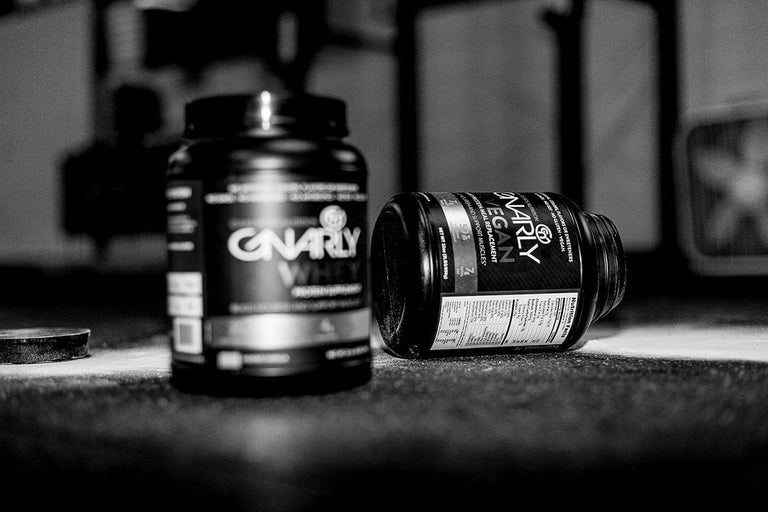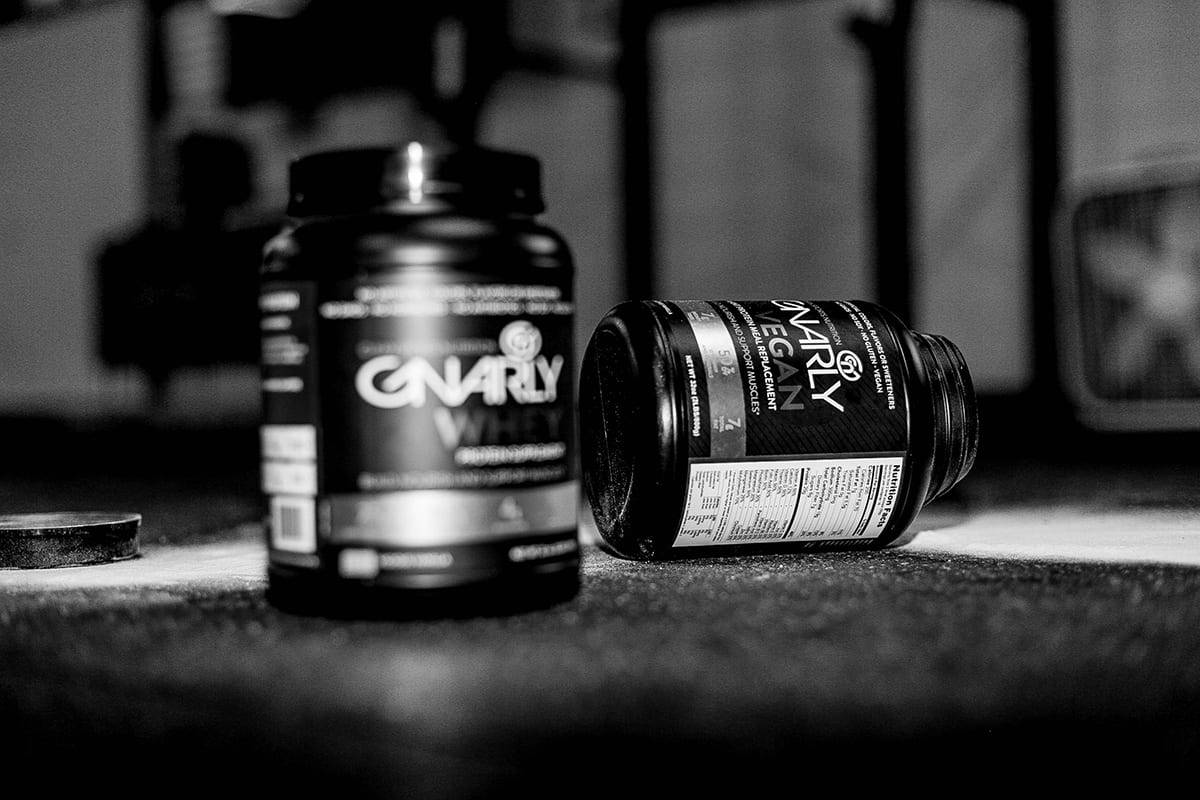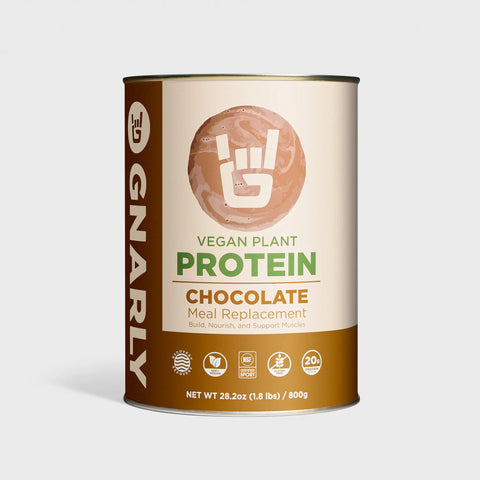Protein has a reputation in the fitness world. When a person begins training, the first dietary change they make is to increase protein. When the diet logs of the bulkiest men in the world are published, it’s not uncommon to see protein intakes of 400 or more grams per day. Our muscles are literally made from protein; it seems natural that increasing dietary protein is the best way to build them.
Historically, some have equated increasing dietary protein with bulking up, therefore those wanting to maintain a lean physique have avoided protein supplementation like the plague. Just as it seems clear to those who want to build muscle that increasing protein is the most important thing they can do, it’s clear to those who want to avoid getting bulky that limiting protein will accomplish their goal.
Unfortunately, both groups get it wrong. The reality is that while protein is definitely important, it’s not responsible for creating bulky muscles, at least not directly. In fact, it’s probably only the third most important item on the list of interventions needed to gain muscle (after doing the right training and total calories). It’s strange, then, that so many people not only believe protein is the only important factor, but that you could become heavily muscled simply by consuming more protein!
I want to dispel this myth as it’s harmful in at least two ways:
- It encourages athletes who want to gain muscle to focus on the wrong interventions, limiting their potential growth.
- It discourages athletes who want to limit muscle growth to needlessly reduce protein intake, decreasing their training gains and worsening recovery.
In other words, the myth polarizes people towards either too much protein or too little when where we really want athletes to be is at just right. And just right, it turns out, will simultaneously encourage muscle growth in those who want it and limit it in those who don’t. Perfect!
Protein Is a Key Ingredient, but Not the Only Ingredient
When I talk about the role of protein in muscle growth, I use an analogy of building a brick wall. When you build a brick wall, you’re going to need a lot of bricks, but if you just go out and buy a thousand bricks all you’ll end up with is a pile of bricks; bricks, by themselves, are not enough. If you want a brick wall, you also need to put in the work and eat enough energy to do the work. If you don’t put in the work or provide energy, that pile of bricks will never be used no matter how many bricks you add to the pile.
Similarly, if you want to build muscle, you’re going to need protein, but you can’t just add a bunch of protein to your diet and expect to get bulky. You’re also going to need to train correctly, though, and provide an excess of calories so you can devote energy to building muscle on top of all the other tasks your body needs. If you don’t train in a way that leads to muscle bulk, you won’t get bulky. If you don’t provide excess calories, you won’t get bulky. And yes, if you don’t provide enough protein, you won’t get bulky either—but protein isn’t the major culprit here, and restricting it only serves to harm your other goals.
Let’s say that you’re a gymnast or a climber—someone who doesn’t want to weigh a lot because that extra weight could lead to lower performance. You still want and need muscle, just not the same type of muscle as a bodybuilder and not in the same places. Cutting protein out of your diet will accomplish that goal, but you’ll also find it hard to build the compact muscles that would improve your performance. Thankfully, even if you consume the recommended amount of protein for an athlete, you still won’t build a bulky body. That’s because training matters most of all when it comes to growing muscle.
Training Is Key to Muscle Growth
Training is the key ingredient that links dietary protein, total calories, and muscle growth together. To return to the brick wall analogy briefly, training is the blueprint for the wall. Some walls are tall and thick, some are short and thin and others have rises, dips and windows. They’re all made of bricks, but they look and function differently insofar as walls can.
When you train for a certain sport, you give your body the blueprints to a certain form. Have you ever noticed that athletes in the same sport tend to have similar bodies? This is, at least in part, due to what we might call morphological convergence in athletes—which is to say that training for a sport builds a body better at doing that sport.
There’s a reason cyclists don’t end up looking like bodybuilders despite training as hard and eating as many (if not more) calories. It’s not because those cyclists aren’t eating as much protein—it’s because their training doesn’t encourage engorged biceps, backs, or chests. Instead, cyclists develop powerful thighs and calves, muscles that propel them forward and improve their overall performance.
The beautiful thing about training for your sport is that it’s nearly impossible to adapt in a disadvantageous way. No matter what sport you train for, you’re going to build the muscles that help you do that sport and not the muscles that do not.
Furthermore, if your sport doesn’t benefit from overly large muscles, your training is unlikely to induce that sort of muscle growth. Gymnasts are clearly powerful and muscular, but they don’t look like bodybuilders. The same goes for climbers, dancers, sprinters, and any number of other bodyweight-conscious sports.
Regardless, whatever type of training you do will benefit from protein. Cutting protein doesn’t just prevent you from becoming bulky, it prevents you from optimally adapting.
Protein Is the Material, You Provide the Plan
Protein is the critical material in muscle growth; no protein, no muscle. Protein is not sufficient in-and-of-itself to building muscle, though. You also have to do the work, and you have to do the right sort of work.
If you’re an athlete, it doesn’t matter how much muscle is ideal for your sport because protein is a necessary component for all types of training and adaptation. If your sport favors dense, compact forms, then you can trust that the training you engage in will provide the proper blueprint for your muscles to follow. The protein you consume is just a raw material to be used by those blueprints. If you don’t want to build a bulky wall, don’t cut back on bricks, change your plan!
It’s a myth that protein will make you bulky, and cutting back on protein intake won’t help you. You need to trust your training, and if you want the best results, you need to feed that training.





